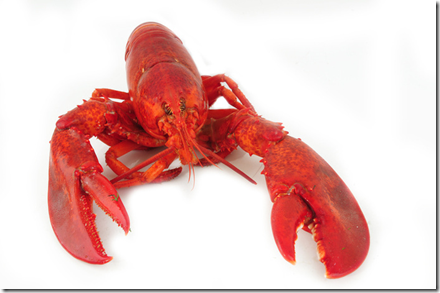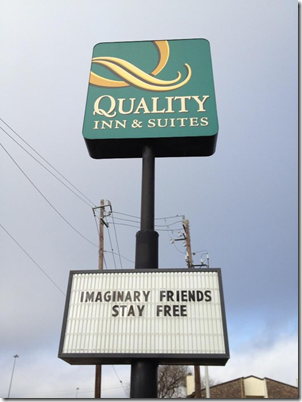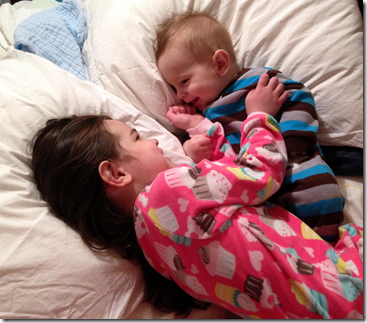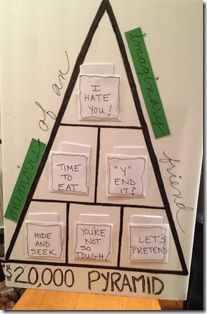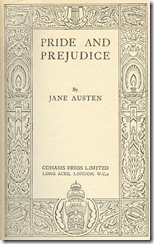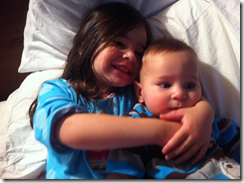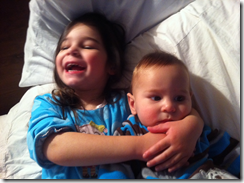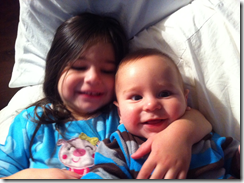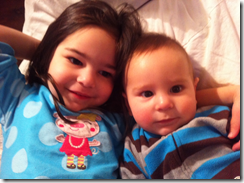Matthew Dicks's Blog, page 486
February 8, 2013
Don’t eat the poor lobster.
About 200 years ago, the lobster was regarded by most Americans as a filthy, bottom-feeding scavenger unfit for consumption by civilized people. Frequently ground up and used as fertilizer, the crustacean was, at best, poor people’s food. In fact, in some colonies, the lobster was the subject of laws—laws that forbade feeding it to prisoners more than once a week because that was “cruel and unusual” treatment.
This is the opening paragraph of Josh Schonwald’s Slate piece that discusses insects as a viable source of nutrition for human beings. As someone who does not like lobster, I love this paragraph. The food that people are willing to pay six dollars a pound to eat, basically because it’s become scarce, was once considered unfit for human consumption because of the ease by which it could be acquired.
And probably because it’s disgusting.
Despite how much you might profess your love for the taste of lobster, taste is not the only factor at work here. If lobster were as plentiful as it was two hundred years ago, it would cost a penny a pound and you would be feeding it to your least favorite dog.
Should we be surprised? Name another food that is almost always dipped in butter. If lobster were really so tasty, why the near-ubiquitous need for melted butter?
I love mentioning this fact to lobster lovers and watching their reaction. Some simply ignore my statement entirely, while others attempt to rationalize this unfortunate fact by explaining that the way we prepare lobster today (dropping a living creature into a boiling pot of water) is different than how it was prepared two centuries ago, therefore changing the taste entirely.
For these folks, I have some unfortunate news:
It was previously believed that the lobsters were incapable of feeling pain, and this allowed chefs to drop them into a boiling pot of water while still alive without any moral conundrums.
New research demonstrates that this is not the case.
It turns out that not only do lobsters feel pain, but they are capable of learning to avoid pain.
Unless, of course, you drop them into a pot of boiling water. Then there’s no avoiding the agony of death. Just a horrific boiling of flesh and eyes until the lobster is dead.
Bon appetite!
I have no problem with people eating lobster. While I don’t love lobster and haven’t eaten it in years, I’ve enjoyed it the few times I’ve actually eaten.
Of course, I’m not please to learn that the animals are capable of feeling pain as they are boiled alive. But I’m even less pleased with the way that scarcity and price have changed the perception of lobster. This is not a food that human beings inherently find appetizing. It is essentially an insect that crawls on the ocean floor that must be soak in butter in order to be made palatable.
Eat all the lobster that you want, but please remember that this was an animal once served to dogs and servants because people despised its taste and because it was cheap and plentiful.
At least acknowledge that you probably like lobster because you were told to like lobster, and you were told to like lobster because it costs a lot of money.
And it’s an effective conveyance vehicle for butter.
February 7, 2013
Gold diggers begone!
“Money impresses lazy girls. For those who work hard, a man with money is just a bonus, not a ladder” – Unknown
No, he shouldn’t even be a bonus. A man’s wealth or lack thereof should not be a consideration when choosing who to date or potentially marry.
I’ve spent most of my life in female dominated industries (including attending an all-women’s college for three years), and I have heard the wealth and earning potential of prospective men discussed with disturbing frequency.
I heard it spoken of three times this week.
I’ll repeat that:
Three times this week I listened to a woman talk about a man in terms of his income or overall wealth. In each case, money was one of the leading factors when it came to determining if a man had dating potential.
I hear this sentiment expressed on television and film all the time, too. I heard it discussed on a television show last night, and I only watched one show.
I despise this notion with every fiber of my being.
The last thing I want my daughter to hear is anyone, but especially a potential female role model, talking about a man in terms of his income potential or personal worth.
Whenever I hear a discussion like this, I always make my disgust known.
Always.
Please don’t get me wrong. Not all women participate in this brand of materialistic self-degradation. But I hear these conversations with shocking and disturbing regularity.
Also, men suck, too, so please don’t think this is some attempt to elevate the status of manhood. Our priorities can be equally appalling. Though I’ve never heard a man talk about a woman in terms of net worth or potential income, we are certainly not without our faults.
But this is the quote I saw today, so this is what I wrote about. As the father of a young, impressionable daughter, I’d appreciate it if these discussions of a man’s wealth would cease immediately.
I would much prefer that Clara earn her own living rather than rely on a man’s income (or even view it as a bonus). If she falls in love with a humble painter or a hard working sanitation worker, good for her.
Just so long as he is kind and loves her.
Please. Enough about the money.
February 6, 2013
Should I hope that my children struggle as much as I did?
The Atlantic recently ran a piece entitled Why Parents Need to Let Their Children Fail. Written by a teacher, it describes a recent study that examined overparenting, a phenomenon characterized by a parent’s “misguided attempt to improve their child’s current and future personal and academic success.”
According to the the authors, parents guilty of this kind of overparenting “take their child’s perception as truth, regardless of the facts,” and are “quick to believe their child over the adult and deny the possibility that their child was at fault or would even do something of that nature.”
As a teacher, I have seen a steep rise in overparenting during my fifteen year career. I have seen it with even greater frequency in the ways in which my friends and relatives are now raising their children.
As parents, I am relatively certain that Elysha and I are not guilty of overparenting. Our experience as teachers has taught us the value of high standards, uncompromising expectations and the need for children to find their own way. Struggle and tears are necessary for a child to learn, and we are not afraid to allow our children to experience these things in the road to becoming an adult.
But the rise of overparenting highlights an issue I have been struggling with ever since my first child was born:
How much struggle should I want for my children?
Any success that I have enjoyed over the course of my lifetime is the direct result of a childhood of underparenting and a lifetime of struggle. So much of my character, work ethic, resilience, self confidence and desire to achieve is the result of a childhood of filled with parental inattention followed by a decade that was marred by poverty, an armed robbery, an arrest and trial for a crime I did not commit, a brief stint with homelessness and the complete and total lack of assistance from anyone in the world save myself. I put myself through college, double majoring in education and English while working 45 hours a week managing a McDonald’s restaurant and 15 hours a week in the school’s Writing Center. While it wasn’t the best way to receive an education, I learned more through the struggle to achieve my degree than I ever learned within the walls of the classroom.
When someone asks my how I manage to accomplish so much, I often think back on the five years I spent in college and wonder why I am not doing more.
I would not be standing here today as a teacher, an author, a husband and a father had I not experienced those struggles earlier in life. My pipedream to “write for a living and teach for pleasure” is closer to realization than than ever thought possible, primarily because of the adversity that I have faced and the struggles that I have overcome.
While I often find myself envious of those who experienced idyllic childhoods and were not forced to scratch and claw their way through young adulthood, paying for college and wondering where their next meal might come from, I would not change a thing about my life if given the chance. I have seen the damage that overparenting can do to a person, and more importantly, I have experienced the value of intense struggle.
This leaves me wondering what I should do for my children. Despite our willingness to allow our children to struggle, I would never want Clara or Charlie to experience hardship to the degree that I did. I want to give my children the childhood that I never had. I want to offer them the support that they will need later on in life. I don’t want them to worry about paying for college. I don’t want them to experience homelessness or hunger. I never want them trapped in the maze of the criminal justice system, alone and confused and unsupported.
But these are the things that have allowed me to be successful. Take them away and I shudder to think what my life would be today.
My struggles and failures are my greatest assets. They have given me a perspective and a degree of self confidence that I cherish. They have made me the person I am today.
Knowing this, what is a father to do for his children?
While I understand the value of struggle and suffering, it’s crazy to wish the kind of struggles that I endured upon my children.
Right?
I want my children to grow up to be resilient, self confident, driven and grounded adults, but can this truly happen without facing truly mighty struggles and possible calamity?
I don’t know. This is my fear.
February 5, 2013
She loved me first for my storytelling
I’ve been working on a story for The Moth about the beginning of my relationship with my wife and some of the more uncharacteristically awkward and foolish decisions that I made in those early days. It’s been fun to talk about and relive some of those moments together when we first fell in love. We’ve laughed about my naivety, debated the exact order of events and recalled details that had long been forgotten.
I’ve also leaned a few new things about the beginning of our relationship, including one detail that shocked me.
Before we even began dating, Elysha and I decided to go to our school’s talent show together. I was preforming a comedy act with a student, and several of Elysha’s students were in the show as well. Before the show, we stopped for dinner at a nearby Chilli’s. During the course of that meal, we began talking about my past, and by the time we were splitting the check, I had told Elysha about many of the challenges and difficulties that I have experienced in my life.
My two near-death experiences.
The robbery.
My arrest and trial for a crime I did not commit.
My evil stepfather.
My period of homeless.
These were stories that I did not normally talk about with people, and especially with girls who I liked but thought were out of my league. I was suffering from post traumatic stress disorder at the time, and the last thing I wanted to do was talk about some of the more traumatic moments of my life. But for reasons I don’t understand or remember, those stories came pouring forth from me that night, and Elysha listened with earnestness and empathy.
In talking with Elysha about the early stages of our relationship and this evening in particular, she told me that it was during that dinner at Chilli’s when she first started to like me.
“Why?” I asked. I had always assumed that she first started liking me because of my teaching and the way I connected with children.
No,” she said. “It was your storytelling. That’s what I liked first.”
Not my rugged good looks.
Not my wit and charm.
Not my skill and expertise as an educator.
Not my intellect and erudition.
Not my ability to post-up and rebound the ball despite my lack of size.
She liked my storytelling first.
As a novelist and a storyteller for The Moth and similar organizations, I like this. While I’m sure that my rugged good looks and post-up moves helped in fanning the flames of love, it was my ability to tell a story, and probably the stories themselves, that she loved first.
I love that.
I was describing the story that I was preparing for The Moth to a longtime friend and colleague yesterday, and she told me that before Elysha and I had even begun officially dating, Elysha had pulled her and another friend into an empty classroom one afternoon and declared that she was falling in love with me. “I am going to marry Matthew Dicks,” she told these two girls.
I love that, too. And I hadn’t known about that moment either until now.
May I suggest that if you are married, you spend an evening talking about the early days of your relationship with your spouse. Discuss the timeline of events, the specific details and be sure to ask your spouse what he or she loved about you first.
The answers may surprise you.
Save money. Choose only imaginary friends.
February 4, 2013
My children make me a lesser man
While reading a story about a prince and a princess falling in love and living happily ever after, Clara said, “I think I’ll stay with Charlie. I’m going to fall in love with him and live happily ever after.”
I would normally say something cynical, biting, amusing and possibly inappropriate after a remark like that, but my children seem to have the power to neuter my best qualities again and again.
The $20,000 Pyramid book club
Elysha and I attended a book club in Tolland on Friday night, and it was one of the most entertaining that I have ever had the pleasure of joining.
The evening kicked off with a living room version of the $20,000 Pyramid. The sixteen members of the book club were divided in half down the center of the living room, with me and Elysha placed on opposing teams. The theme song from the original television show was played through the stereo speakers, and then teams took turns choosing categories from a makeshift game board and answering questions about MEMOIRS OF AN IMAGINARY FRIEND.
There was also a bonus round with questions pertaining only to me. During the bonus round, Elysha asked the questions and I was excluded from playing.
Apparently many of their book club meetings begin with games.
The 50 SHADES OF GRAY Pictionary game was reportedly something to behold.
We talked about the book and writing and aspects of my personal life for nearly three hours, but we enjoyed every minute of it. There was a lot of laughter, a few tears, quite a few questions directed at Elysha and some challenging questions directed at me, including:
“Is it possible that you have ADD?”
“In terms of religion, what do you believe?”
“If you were going to give a TED Talk, what would you talk about?”
Coincidentally, I had completed the TED Talk application process two days earlier, but not even Elysha knew that I had completed the process. The person asking the question simply thought that I would make a good speaker for a TED conference.
I’m hoping the organizers of TED agree.
I give out a prize at every book event to the person who asks the most unusual or most difficult question to answer. Friday night’s prize was the Spanish version of MEMOIRS OF AN IMAGINARY FRIEND, which went to the woman who asked me if I had attention deficit disorder. While this was admittedly an unusual question (and would have been difficult for me to answer had Elysha not been there to help), the real reason I gave it to her was because she cried the most during the course of the evening.
As for the ADD question, Elysha stated with certainty that I do not have any kind of attention deficit disorder (and she’s an elementary school teacher, so she would know).
If anything, she said, I am mildly obsessive.
She may be right.
This same woman also attempted to tell us that she would prefer the last name Dicks to her own, which is an Italian name that is sometimes mispronounced “ricotta” or something similar.
I told her that she was insane and that everyone in the room agreed with me, which they did.
February 3, 2013
I’m an Elizabeth Bennet.
PRIDE AND PREJUDICE is 200 years old this week.
In celebration of this anniversary, Anglerfish Magazine created a “Which Pride and Prejudice Character Are You?” flowchart.
Usually these flowcharts are nonsense, but this one seems, at least for me, spot on.
It turns out that I am a Lizzie (Elizabeth Bennet), which is described as:
You are strong willed and aren’t afraid to express your opinion when you feel the moment is right. You can find it difficult to empathize with people of a different opinion or nature to yourself.
If asked to write a two sentence description of myself, I may have chosen these very words.
No wonder I like the book so much. Other than the emphasis placed on marrying a wealthy man (I cannot tell you how much this desire both disgusts and disturbs me, regardless of the time period), I have always adored the story.
The flowchart also led me to The Lizzie Bennet Diaries, an online, modern day video journal adaption of the book that I highly recommend. Hilarious and exceptionally well done.
Sibling adoration
There may come a day when my children want to kill each other.
When that happens, my hope is that they will look back on these photos and remember how much you love each other, too.
February 2, 2013
The majesty and utility of the Baby Mum Mum
When I’m desperately trying to squeeze out a few more sentences of my manuscript and Charlie is demanding my attention, I can always depend on a Baby Mum Mum, a tasteless rice treat, to give me the the few more minute that I need to finish.
Charlie loves Baby Mum Mums.
Unfortunately, he’s so damn cute while eating his Baby Mum Mum that I often can’t focus on the manuscript.

